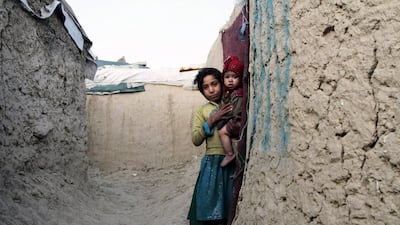The carnage that we see each day in Iraq and Syria is heartbreaking. The thugs of ISIL and other extremist groups and Bashar Al Assad’s despotic gang commit horrific crimes day after day. With challenges like these in the near neighbourhood, it is difficult to cast one’s eyes further afield. But we must prove to the world that secure and prosperous countries can be born out of wars against violent extremism. This is one of the reasons why Afghanistan’s success is so vital for us all.
Afghanistan has been a key focus of the international community’s fight against terrorism since September 11, 2001. Al Qaeda is a shadow of its former self in Afghanistan. However, as shown by last week’s attack on a British Embassy car that resulted in deaths and injuries to innocent civilians, much more needs to be done. It is right, therefore, that the international community continues to support the Afghan armed forces.
But the struggle in Afghanistan cannot be won solely by fighting. Since the beginning of the war on terror in 2001, Afghanistan has made significant progress in many areas, including education, health care, economic growth and women’s rights. With the support of the wider international community, 6.7 million children are now in school, up from 1 million in 2001. Access to primary health care has increased from 9 per cent in 2003 to more than 50 per cent now. Maternal mortality has halved since 2001 and life expectancy is at its highest level ever.
To protect this progress, the international community’s continued long-term support will be crucial. There is a risk that Afghanistan’s security gains could be lost. That would bring further instability to the region and the world. Afghanistan’s success is in all our interests.
That is why British prime minister David Cameron and Afghan president Ashraf Ghani will host international talks in London today. This will be a unique moment for Afghanistan and the international community to relaunch their relationship. In London, Mr Ghani will set out his priorities and vision for the revitalisation of the economy.
The conference will also be an opportunity for the international community, civil society and wider stakeholders to set out their commitment to Afghanistan. The international community has welcomed the early focus on accountability and the anti-corruption agenda which bodes well for a comprehensive reform agenda in the areas that matter – security, the economy and business environment, regional cooperation, women and girls, and electoral reform.
As Afghanistan looks forward to recovering from decades of fighting, the international community should look to move from an aid-based relationship to a more normal economic relationship. The London conference will seek to support reforms that will ease this transition to self-reliance. Countries in this region – and particularly the UAE, which is already a significant business investor in Afghanistan and home to many Afghan businessman – are well-placed to take advantage of such opportunities as these reforms will offer.
The UAE has a history of supporting Afghans in their quest for freedom and progress – providing financial and humanitarian aid during the resistance to Soviet occupation in the 1980s and, more recently, military assistance as part of the International Security and Assistance Force. The highly skilled UAE Air Force and more personnel than 1,200 UAE special forces made a key contribution to enabling the Afghanistan National Security Force to assume responsibility for the security of Afghanistan’s 30 million citizens.
The importance of Afghanistan to the UAE is demonstrated by the senior level of Emirati representation at the conference in London – an important sign of the UAE’s enduring commitment to Afghanistan.
Afghanistan can and will be a sustainable success. The new government will lead this success. But it needs the international community’s continued support to counter terrorism, implement reform and develop its economy.
As it emerges from conflict, Afghanistan is one of the poorest countries in the world. To help Afghanistan overcome its poverty and continue to improve its security is a matter both of moral imperative and of vital interest for us all.
Philip Parham is the UK ambassador to the UAE. Dr Najibullah Mojadidi is Afghanistan’s ambassador to the UAE

